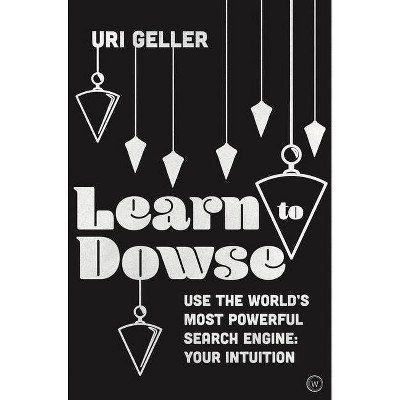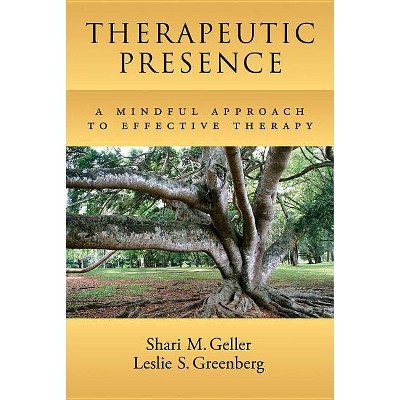Bestiarium Judaicum - by Jay Geller (Hardcover)

Similar Products
Products of same category from the store
AllProduct info
<p/><br></br><p><b> About the Book </b></p></br></br>Through close textual analysis, detailed historical contextualization, and critical animal theory Bestiarium Judaicum examines how and to what ends German-Jewish writers (including Freud, Heine, and Kafka) drew upon the vast inventory of verbal and visual images of nonhuman animals disseminated for millennia to bestialize, debase, and justify the persecution of Jews.<p/><br></br><p><b> Book Synopsis </b></p></br></br><p>Given the vast inventory of verbal and visual images of nonhuman animals--pigs, dogs, vermin, rodents, apes disseminated for millennia to debase, dehumanize, and justify the persecution of Jews, <i>Bestiarium Judaicum</i> asks: What is at play when Jewish-identified writers tell animal stories? <p/>Focusing on the nonhuman-animal constructions of primarily Germanophone authors, including Sigmund Freud, Heinrich Heine, Franz Kafka, and Gertrud Kolmar, Jay Geller expands his earlier examinations (<i>On Freud's Jewish Body: Mitigating Circumcisions</i> and <i>The Other Jewish Question: Identifying the Jew and Making Sense of Modernity</i>) of how such writers drew upon representations of Jewish corporeality in order to work through their particular situations in Gentile modernity. From Heine's ironic lizards to Kafka's <i>Red Peter</i> and Siodmak's <i>Wolf Man</i>, <i>Bestiarium Judaicum</i> brings together Jewish cultural studies and critical animal studies to ferret out these writers' engagement with the bestial answers upon which the Jewish and animal questions converged and by which varieties of the species Jew were identified.</p><p/><br></br><p><b> Review Quotes </b></p></br></br><br><i>Bestiarium Judaicum</i> combines insightful analysis of the texts under investigation with extensive research into its subject matter. It deftly constructs a complex intertextual network while situating its constitutive components within the social and historical context of their composition.-- "Reading Religion"<br><br>[Geller] is exceptionally, and in a way that I find profoundly ethical, modest in his refusal either to celebrate his several authors as cultural heroes of Jewish self-worth or to denigrate them as capitulating to dominant stereotypes. What he offers is not a new narrative of the past, nor even a new map of what it is, or whose story we need to tell. He challenges us, rather, to return to the archives as more careful readers, especially but not only because he has made us more sensitive to the slippages between analogy and dichotomy in the fateful pairs animal-human, Jew-human, and Jew-animal.<b>---Jonathan Boyarin, <i>Antisemitism Studies</i></b><br><br>Geller's book is an extraordinary one. Its meticulously researched detail, intellectual rigor, and analytical acuity, no less than its broad yet never unrestrained sweep, recommend it to scholars from many disciplines, including German culture and literature, Jewish studies, cultural history, antisemitism studies, and animal studies.-- "Central European History"<br><br>In <i>Bestiarium Judaicum</i>, Jay Geller brings together the Jewish Question with the question of the animal. He explores the ways in which Jews, particularly in German-speaking European Modernity (between 1750 and the Shoah), have been dehumanized through images of animals, and how they, in turn, have written back to undermine these anti-Semitic stereotypes with animal figures of their own.-- "Humanimalia"<br><br>Jay Geller must have been collecting beasts--or rather, textual identifications of Jews with beasts--for quite a long time before gathering them in his recent book, <i>Bestiarium Judaicum</i>... In its explorations of the varied invocations of animals in the texts by Jewish authors, Geller offers a more persuasive model for understanding these texts than that of self-hatred or internalized anti-semitism.-- "German Quarterly"<br><br>[A] thoughtful and deeply researched new study. . .<b>---Paul Reitter, <i>The New Yorker</i></b><br><br>Informed by critical animal studies, new historicism, and psychoanalysis, Jay Geller's <i>Bestiarium </i><i>Judaicum: Unnatural Histories of the Jews</i> is witty and wide-ranging, its richness matching that of the modern Jewish literary works it treats.<b>---Beth A. Berkowitz, <i>Religion</i></b><br><br>Jay Geller's<i> Bestiarium Judaicum: Unnatural Histories of the Jews</i> is a remarkable monograph that has no parallel in scholarly literature. The author offers a sophisticated conceptual and historical account of how the longstanding discourse about the animality of the Jew is accompanied by an iconography of an unnatural Jewish bestiary. The racial anti-Semitism that fueled the horrors of the Holocaust is contextualized in a new and thought-provoking way.<b>---Elliot R. Wolfson, <i>University of California, Santa Barbara</i></b><br><p/><br></br><p><b> About the Author </b></p></br></br><b>Jay Geller</b> is Professor of Modern Jewish Culture at Vanderbilt Divinity School and the Vanderbilt University Jewish Studies Program, and has also taught at the University of Vienna, Bryn Mawr College, Princeton University, Rutgers University, Swarthmore College, and Wesleyan University. He is the author of <i>On Freud's Jewish Body: Mitigating Circumcisions </i>(2007), <i>The Other Jewish Question: Identifying the Jew and Making Sense of Modernity</i> (2011), and <i>Bestiarium Judaicum: Unnatural Histories of the Jews</i> (2018), all from Fordham University Press; and the co-editor of <i>Reading Freud's Reading</i> (New York University Press, 1994).
Price History
Price Archive shows prices from various stores, lets you see history and find the cheapest. There is no actual sale on the website. For all support, inquiry and suggestion messagescommunication@pricearchive.us




















